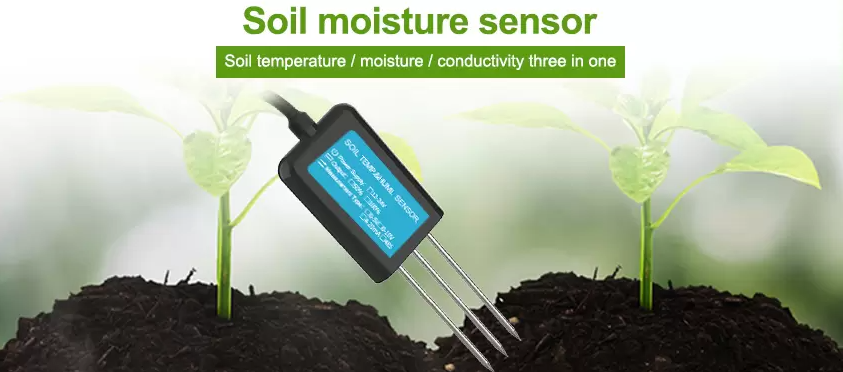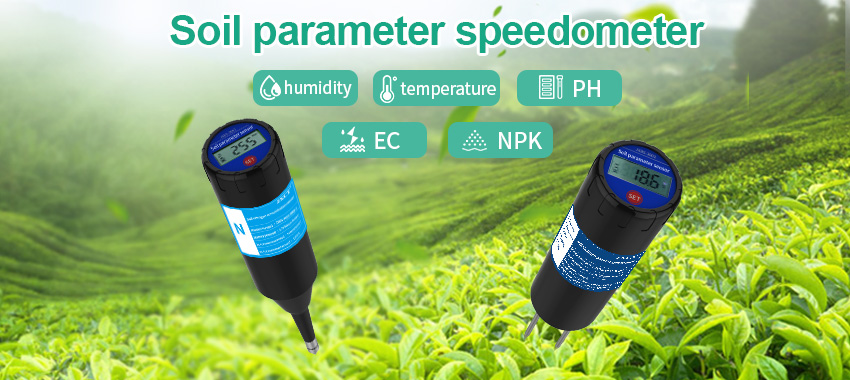What are Smart Soil Moisture Sensor?

Smart soil moisture sensor are advanced devices that provide real-time information about soil moisture content. These sensors are installed in the ground, and they communicate with a central monitoring system, providing farmers with accurate information about the soil’s moisture level. Smart soil moisture sensors come in different shapes and sizes, with varying capabilities to measure soil moisture content. Some sensors can measure other factors such as temperature, soil pH, and nutrient levels.
What is Precision Agriculture?

Precision agriculture is a farming system that leverages technology solutions to increase the efficiency of agricultural practices while reducing waste. Precision agriculture monitors different factors such as weather patterns, soil conditions, plant growth rates, incidence of pests and diseases to achieve goals. By doing so, farmers can optimize crop yield while reducing the use of resources such as water, fertilizer, and pesticides. Precision agriculture relies on a combination of technologies, including Global Positioning System (GPS), Geographic Information System (GIS), satellite imagery, and sensors.
Benefits of Smart Soil Moisture Sensor in Precision Agriculture
Smart soil moisture sensors have numerous benefits to farmers practicing precision agriculture. Some of these benefits include;
Improved water management: Smart soil moisture sensors provide farmers with real-time information about soil moisture content. By doing so, farmers can make informed decisions about when to irrigate, how long to irrigate and the amount of water needed for specific crops. This helps farmers to optimize their water use while avoiding overwatering or under-watering.

Increased crop yield: Smart soil moisture sensors enable farmers to manage their crops better by ensuring that the crops get the right amount of water at the right time. This helps to promote crop growth, leading to increased crop yield.
Reduced fertilizer usage: Smart soil moisture sensors also help farmers to optimize fertilizer use by providing accurate information about the soil’s nutrient content. By doing so, farmers can apply the necessary amount of fertilizer, avoiding excessive use that leads to environmental degradation.
Eco-friendly farming practices: Precision agriculture, in which smart soil moisture sensors play a role, reduces the negative impact of conventional farming practices on the environment. Reduced water and fertilizer usage help to minimize water and soil pollution, which is a significant threat to the environment.
Challenges of Using Smart Soil Moisture Sensor
Despite the numerous benefits of using smart soil moisture sensors, there are some challenges associated with their use. Some of these challenges include;
High initial investment: Installing smart soil moisture sensors requires a significant initial investment. This includes the cost of sensors, installation, and maintenance.
Technical expertise: Using smart soil moisture sensors requires technical expertise, including knowledge of sensor installation, calibration, and data analysis.
Reliance on technology: Reliance on technology means that system failures lead to crop losses and financial losses for farmers.
Conclusion
Smart soil moisture sensors have revolutionized precision agriculture, allowing farmers to optimize their water and fertilizer use. By providing real-time information about soil moisture content, farmers can make informed decisions about different aspects of crop management. Although there are some challenges associated with using smart soil moisture sensors, their benefits outweigh the challenges. Therefore, farmers must consider using smart soil moisture sensors as part of their precision farming practices.